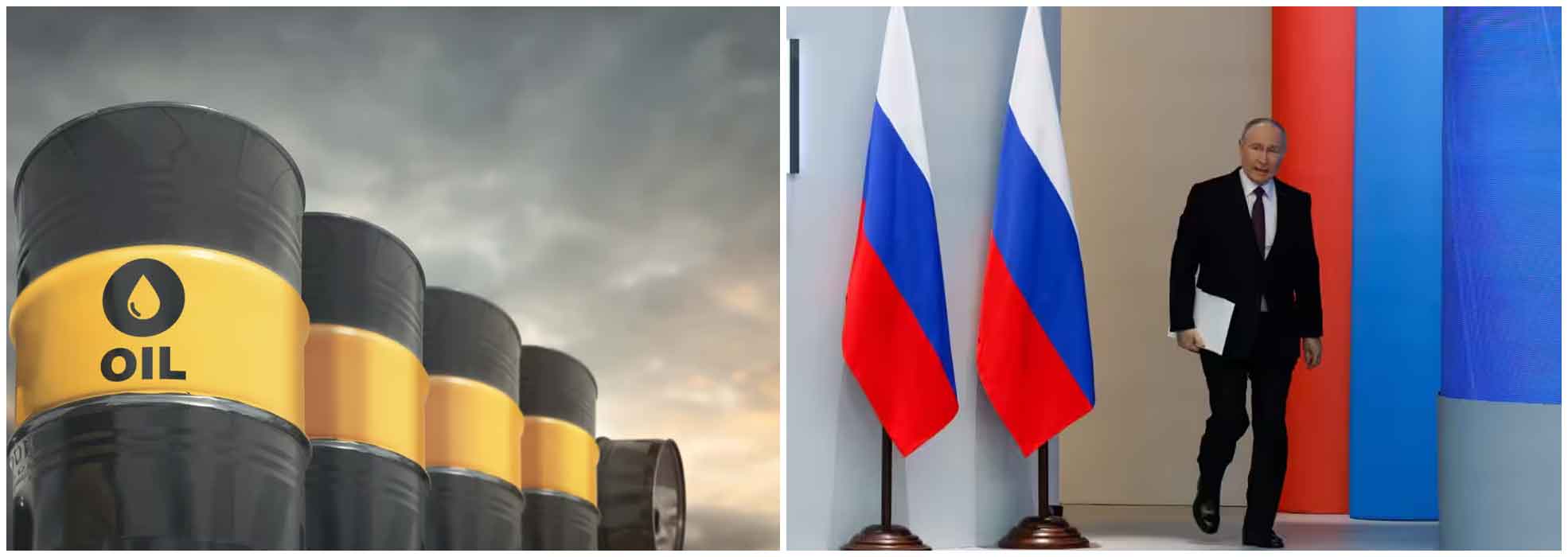Russian Oil Imports Hit 13-Month High, While Saudi Oil Falls to Decade Low

In a striking shift in global energy dynamics, Russian oil imports have surged to a 13-month high, while Saudi oil imports have plummeted to their lowest level in a decade. This development has significant implications for the global oil market and highlights changing geopolitical and economic landscapes.
The Surge in Russian Oil Imports
The recent spike in Russian oil imports is noteworthy. Over the past few months, countries worldwide have ramped up their purchases of Russian crude, taking advantage of lower prices and seeking to diversify their energy sources. According to industry reports, Russian oil exports have reached their highest levels since early last year, with significant increases observed in markets across Asia and Europe.

Several factors contribute to this trend. One key reason is the attractive pricing of Russian oil. Amid global economic uncertainties and fluctuating oil prices, Russian oil has become a more cost-effective option for many countries. Additionally, geopolitical tensions and sanctions on other oil-producing nations have pushed some countries to turn to Russia as a more reliable supplier.
The Decline in Saudi Oil Imports
Contrasting the rise in Russian oil imports, Saudi oil imports have seen a dramatic decline. This drop to a decade low is attributed to various factors, including changes in global demand, shifts in trade policies, and strategic decisions by importing countries to reduce reliance on Middle Eastern oil.
One significant factor is the global push for energy diversification. Many countries are actively seeking to reduce their dependence on any single source of oil, leading to a broader mix of suppliers. Furthermore, advancements in renewable energy and increasing investments in alternative energy sources have contributed to the declining demand for Saudi oil.
Implications for the Global Oil Market
The contrasting trends in Russian and Saudi oil imports have profound implications for the global oil market. These shifts affect oil prices, supply chains, and international relations.
Impact on Oil Prices: The increase in Russian oil exports has exerted downward pressure on global oil prices. With more Russian oil available in the market, the supply-demand balance has shifted, leading to more competitive pricing. Conversely, the reduced demand for Saudi oil has impacted its pricing strategy, forcing adjustments to remain competitive.
Supply Chain Dynamics: The changing patterns of oil imports have also influenced global supply chains. Countries that were traditionally reliant on Saudi oil are now diversifying their sources, leading to new trade routes and logistical adjustments. This shift requires significant coordination and adaptation within the oil industry.
Geopolitical Considerations: The rise in Russian oil imports and the decline in Saudi oil imports reflect broader geopolitical dynamics. Countries are re-evaluating their alliances and trade relationships in light of shifting energy needs and geopolitical tensions. This re-evaluation has implications for diplomatic relations, trade agreements, and global energy security.
Regional Perspectives
Asia: Asia, particularly China and India, has been a major driver of the increased Russian oil imports. Both countries have sought to secure stable and affordable energy supplies amid growing energy demands. The competitive pricing of Russian oil has made it an attractive option for these energy-hungry nations. Additionally, ongoing trade tensions with the United States have encouraged China and India to diversify their energy sources away from traditional suppliers.
Europe: In Europe, the diversification of energy sources has been a strategic priority. European countries have been gradually reducing their reliance on Middle Eastern oil and exploring alternative suppliers. The increase in Russian oil imports aligns with this strategy, providing Europe with a more balanced and secure energy mix.
Future Outlook
The trends observed in the Russian and Saudi oil imports are likely to continue shaping the global energy landscape in the foreseeable future. Several factors will influence these dynamics, including technological advancements, policy changes, and global economic conditions.
Technological Advancements: Innovations in energy technology, particularly in renewable energy and energy storage, will play a crucial role in shaping future energy markets. As countries invest more in renewables, the demand for traditional oil may continue to decline, further impacting major oil producers like Saudi Arabia.
Policy Changes: Government policies on energy security, trade, and environmental sustainability will significantly impact oil import patterns. Countries are likely to prioritize policies that promote energy diversification and reduce carbon emissions, influencing their choice of oil suppliers.
Global Economic Conditions: Economic factors, such as growth rates, inflation, and currency fluctuations, will also affect oil import trends. Countries will continue to seek cost-effective and reliable energy sources to support their economic activities.
Conclusion
The recent rise in Russian oil imports to a 13-month high, coupled with the decline in Saudi oil imports to a decade low, underscores significant shifts in the global oil market. These trends reflect changing economic, geopolitical, and technological landscapes, highlighting the importance of energy diversification and strategic resource management.
Click to read the full article





